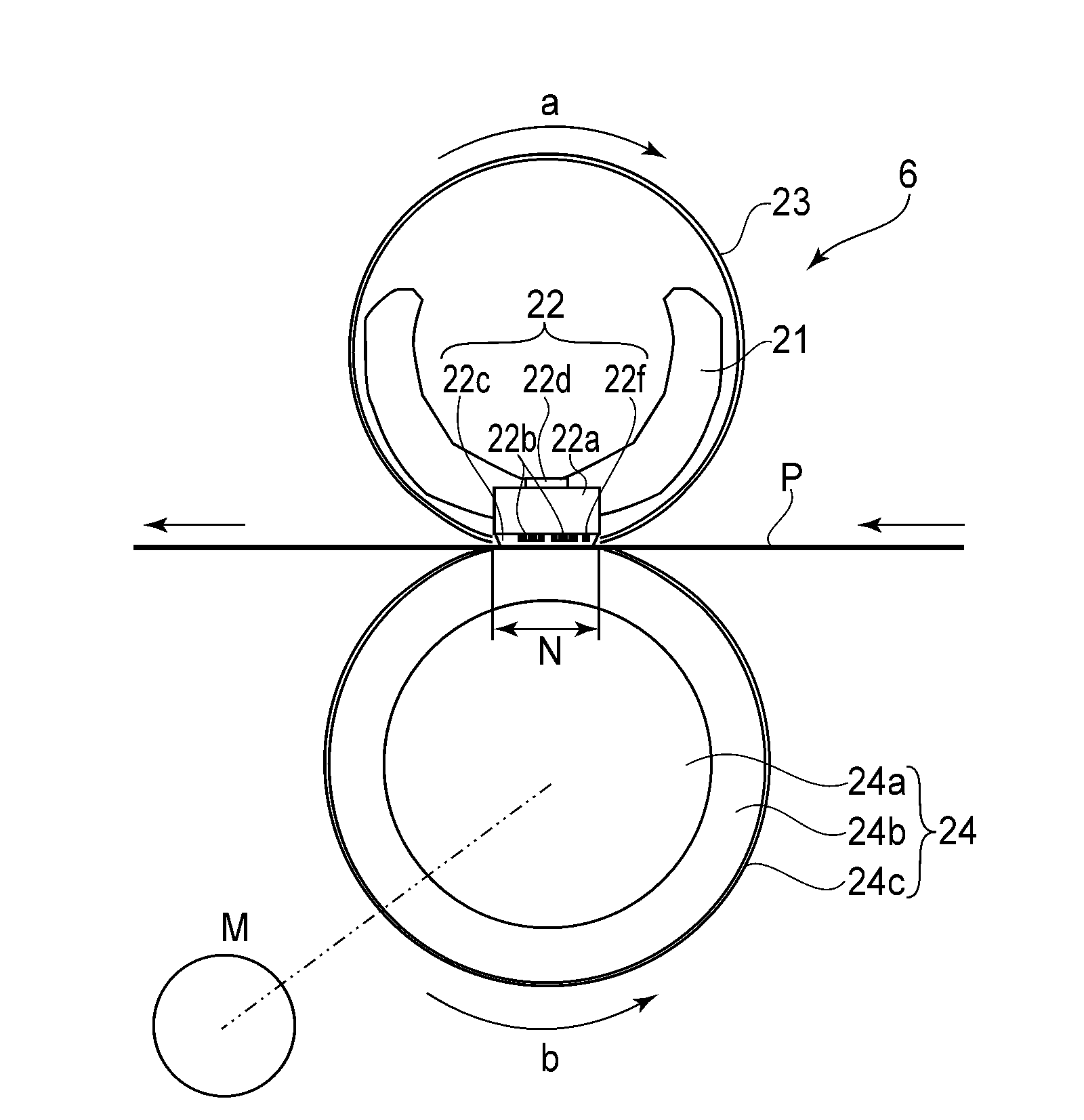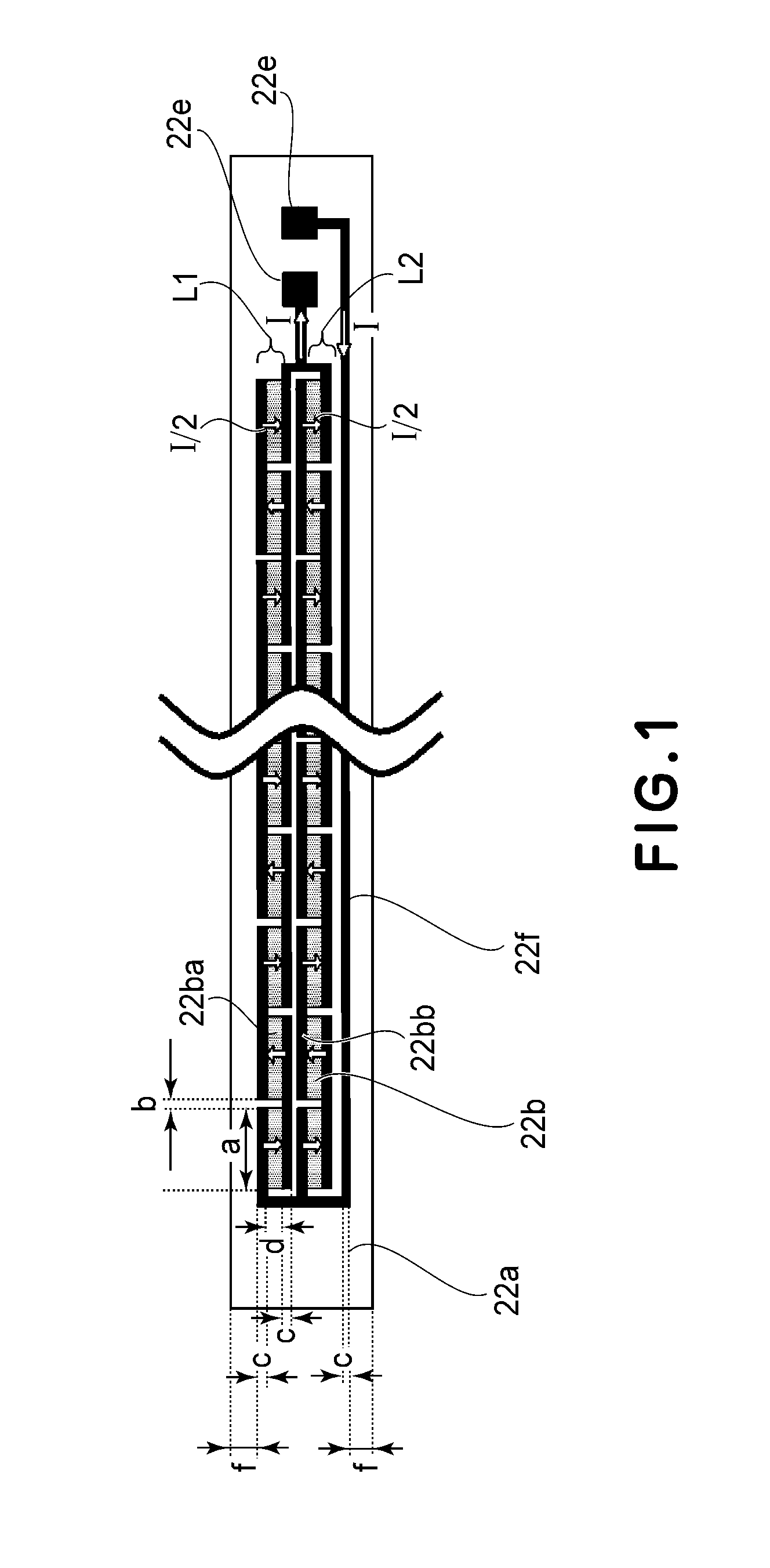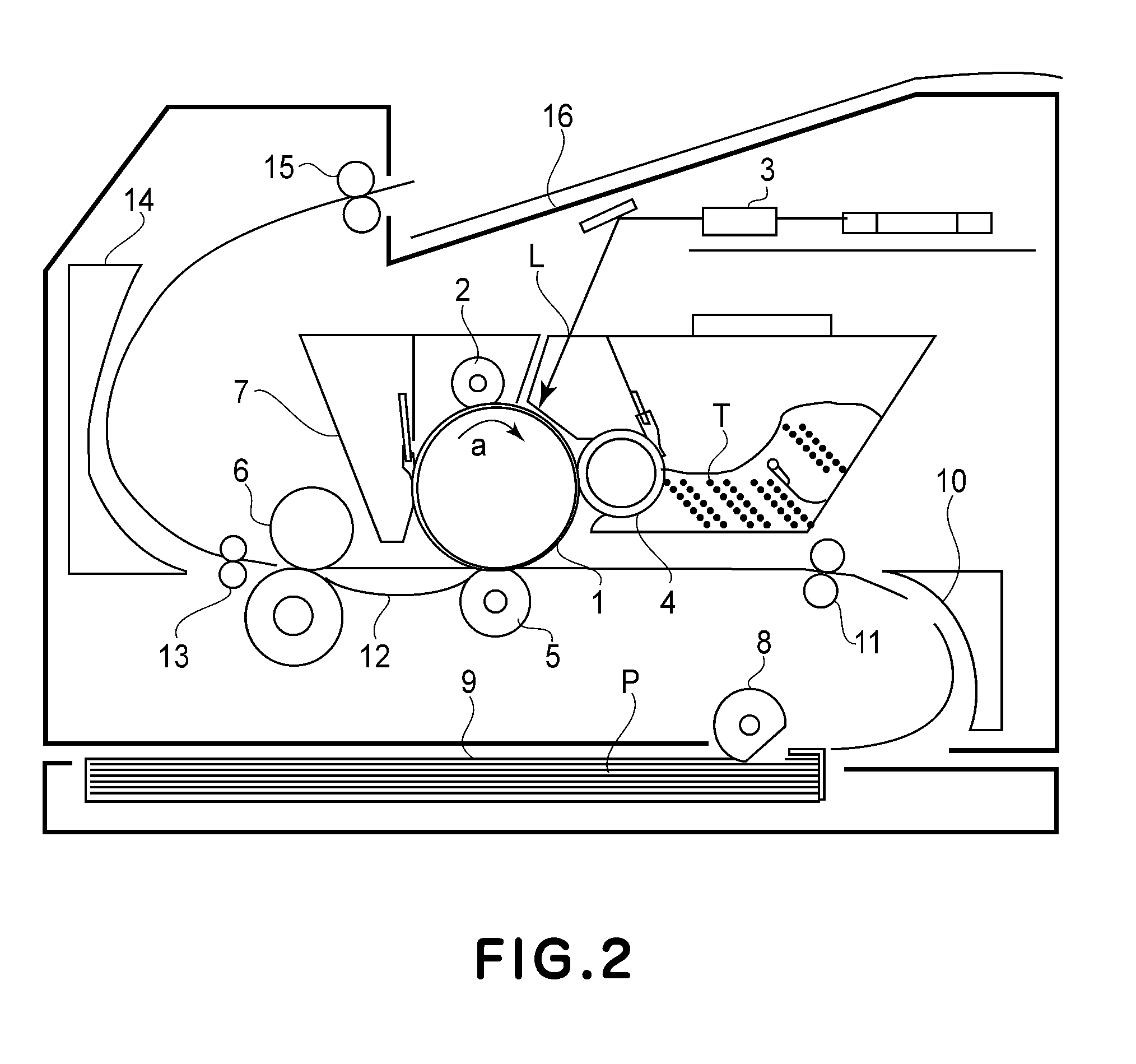Image heating apparatus and heater used in the apparatus
a technology of image heating apparatus and heater, which is applied in the direction of heater elements, instruments, electrographic processes, etc., can solve the problems of difficult to obtain the resistance in the range in which the resistance can be used for a commercial power source, the temperature rise of non-sheet-passing portions, and the inability to meet the requirements of the application of the resistance, etc., to achieve simple constitution, reduce the effect of temperature rise of non-sheet passing portions and low cos
- Summary
- Abstract
- Description
- Claims
- Application Information
AI Technical Summary
Benefits of technology
Problems solved by technology
Method used
Image
Examples
first embodiment
3) This Embodiment (First Embodiment)
[0068]FIG. 1 shows a heater arrangement in this embodiment. In this embodiment, two parallel heat generating resistor trains (L1 and L2) each including 41 heat generating resistors 22b disposed equidistantly arranged in the longitudinal direction are formed. That is, 82 heat generating resistors 22b in total are formed on the substrate 22a. A distance b between adjacent heat generating resistors 22b constituting each heat generating resistor train was 0.5 mm. Each of the heat generating resistors 22b is 5.0 mm in longitudinal length a, 1.0 mm in widthwise length d, thus having the same shape.
[0069]Therefore, the full length of the heat generating resistor train is about 225 mm (including the distance (spacing) b) and is substantially same as those in Comparative Embodiments 1 and 2. The thickness of the heat generating resistors 22b was about 15 μm, thus being equal to that in Comparative Embodiment 1. Further, a total area of the heat generating...
second embodiment
[0102]Second Embodiment of the present invention will be described with reference to the drawings below. A difference from First Embodiment is only that different heat generating resistors of the heater and a different electroconductive pattern are used. Other constitutions of the heater, the image heating apparatus and the image forming apparatus are the same as those in First Embodiment. In First Embodiment, the two parallel heat generating resistor trains were electrically connected in parallel to make the specific resistance ((d) of FIG. 16) of the heat generating resistors larger by 4 times than the specific resistance ((b) of FIG. 16) of the heat generating resistors, thus enabling the lowering in TCR value. Therefore, in order to further increase the specific resistance to lower the TCR value, the number of the heat generating resistor trains to be electrically connected in parallel may only be required to be increased.
[0103]FIG. 10 shows a heater in the case where four paral...
PUM
 Login to View More
Login to View More Abstract
Description
Claims
Application Information
 Login to View More
Login to View More - R&D
- Intellectual Property
- Life Sciences
- Materials
- Tech Scout
- Unparalleled Data Quality
- Higher Quality Content
- 60% Fewer Hallucinations
Browse by: Latest US Patents, China's latest patents, Technical Efficacy Thesaurus, Application Domain, Technology Topic, Popular Technical Reports.
© 2025 PatSnap. All rights reserved.Legal|Privacy policy|Modern Slavery Act Transparency Statement|Sitemap|About US| Contact US: help@patsnap.com



